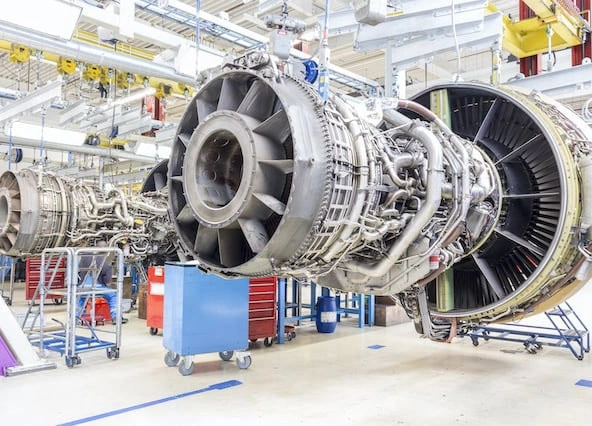Introduction to Nickel Titanium Alloy (Nitinol)
Nickel titanium alloy, also known as Nitinol, is a metal alloy composed primarily of nickel and titanium. Its discovery was accidental, but its properties quickly garnered attention due to its unique characteristics.
Shape Memory Effect of Nitinol
One of the most fascinating properties of nickel titanium alloy is its shape memory effect. This means that after being deformed, it can return to its original shape when exposed to heat. This property is particularly useful in applications where the material needs to undergo deformation and then return to a predefined shape without manual intervention.
Applications of Shape Memory Effect
Medical Devices: Nitinol stents can expand to their original shape to support blood vessels.
Robotics: Components made from Nitinol can perform complex movements and then return to their baseline configuration.
Aerospace: Used in components that require precise shape changes under varying temperatures.
Superelasticity of Nitinol
Another significant property of Nitinol is its superelasticity. Unlike traditional metals, which may permanently deform under stress, Nitinol can withstand considerable strain and return to its original shape without any permanent deformation.
Benefits of Superelasticity
Durability: Ideal for applications requiring flexibility and long-term reliability.
Orthodontics: Devices endure repetitive stress without permanent damage.
Shock Absorption: Suitable for applications where absorbing and dissipating energy is critical.
Corrosion Resistance of Nitinol
Nickel titanium alloys are highly resistant to corrosion, making them suitable for use in harsh environments. This property is especially beneficial in the biomedical field, where materials are often exposed to bodily fluids.
Applications of Corrosion Resistance
Biomedical: Reduces adverse reactions and complications in medical devices.
Marine and Chemical Processing: Withstands corrosive elements and harsh environments.
Nitinol in Medical Applications
Nickel titanium alloys are widely used in the medical field, particularly in the development of stents, guidewires, and orthodontic devices.
Nitinol’s Role in Minimally Invasive Procedures
Stents: Can be compressed for insertion and then expand to support blood vessels.
Orthodontics: Used in braces for consistent force application and recovery.
Prosthetics: Adaptable to complex anatomical structures.
Nitinol in Aerospace and Robotics
In the aerospace and robotics industries, nickel titanium alloys are valued for their lightweight and high-strength properties.
Aerospace and Robotics Applications
Actuators and Sensors: Used in components requiring precise movement.
Morphing Wings and Adaptive Control Surfaces: Improves aircraft efficiency and performance.
Flexible Robots: Enables robots to perform intricate tasks and navigate complex environments.
Nitinol in Consumer Electronics
Nitinol is finding its way into consumer electronics, especially in wearable technology.
Benefits in Wearable Technology
Smartwatches and Fitness Trackers: Provides flexibility and durability to withstand daily use.
Flexible Displays: Enables innovative designs for compact, high-performing devices.
Performance Advantages of Nitinol
The unique properties of nickel titanium alloys enhance the performance of products across various industries.
Key Performance Benefits
Energy Efficiency: Improves operational efficacy in robotics and consumer electronics.
Reliability: Reduces maintenance and replacement costs in fields like medicine and aerospace.
Longevity: Ensures the durability and consistency of devices in demanding environments.
Design Flexibility with Nitinol
The flexibility and adaptability of nickel titanium alloys allow for innovative design solutions.
Creative Potential in Product Development
Complex Shapes and Structures: Engineers can create intricate designs that respond to external stimuli.
New Possibilities: Opens up design options that traditional materials can’t achieve.
Challenges in Nitinol Production
While the benefits of Nitinol are substantial, its cost can be a limiting factor due to the complex manufacturing processes involved.
Addressing Cost and Manufacturing Challenges
Optimizing Manufacturing Techniques: Efforts are underway to reduce production costs and increase accessibility.
Specialized Manufacturing: Requires advanced equipment and expertise.
The Future of Nitinol
As technology advances, the demand for high-performance materials like nickel titanium alloys is expected to grow.
Emerging Applications
Soft Robotics: Nitinol could be key to developing flexible robots.
Smart Textiles: Incorporating Nitinol into clothing for new functionalities.
Advanced Prosthetics: Enhancing the adaptability and comfort of prosthetic devices.
Conclusion: The Promising Future of Nitinol
Nickel titanium alloys, with their unique shape memory, superelasticity, and corrosion-resistant properties, offer significant advantages across various industries. With ongoing research and development, Nitinol is poised to drive future innovations in material science and engineering.







